How The Pandemic Will Change The Dealership Model
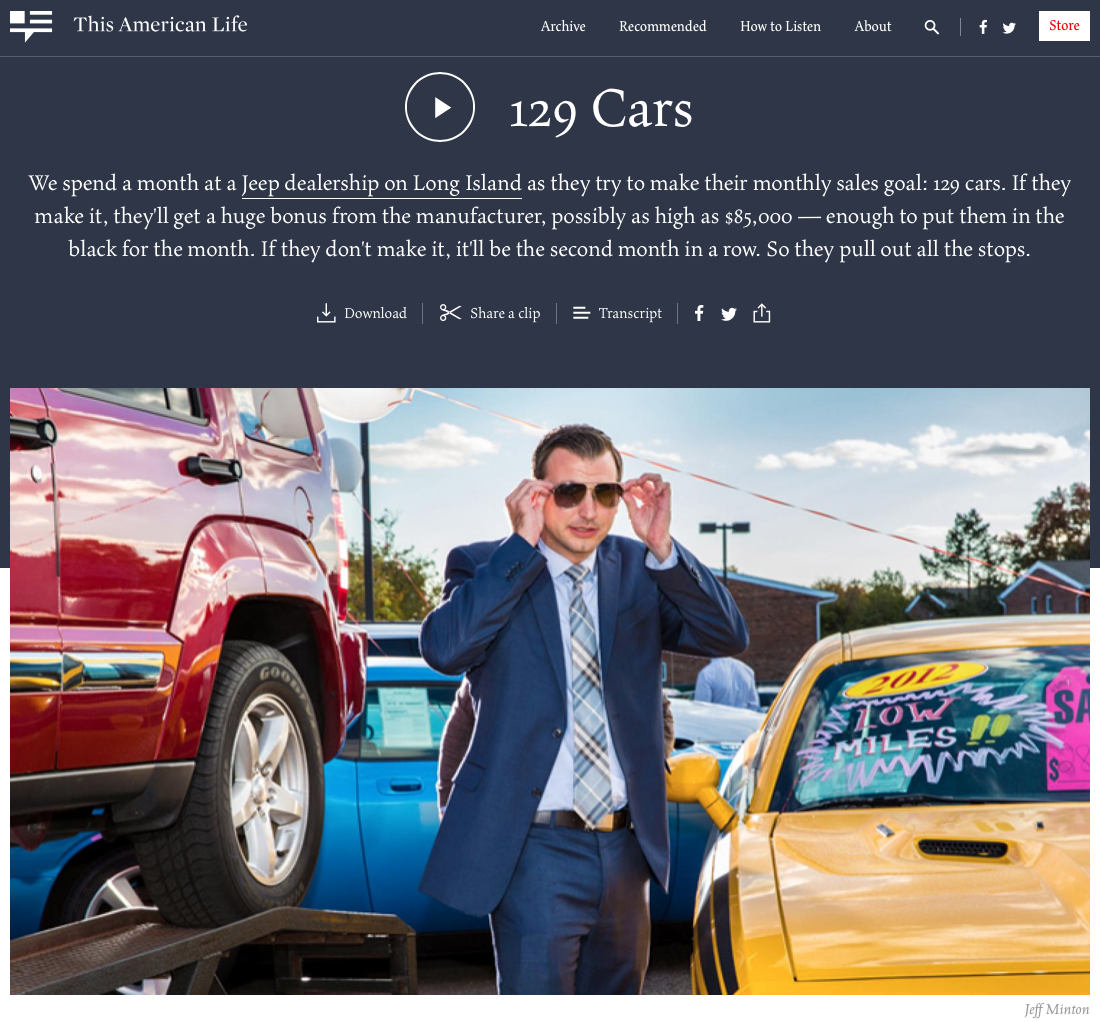
A client of mine sent me the above podcast a few months back in response to one of my columns about the role of the car salesman. I found it very entertaining, and illustrative of the absurdity of the traditional sales model for new and used cars. One can't help but feel for the salesman trapped in what really is a tough way to make a living.
The traditional model sees manufacturers make as many vehicles as they possibly think they can sell - and then 10% more - and push them on the dealers. When the manufacturers want the dealers to do certain things, like sell more cars, they just re-jig the dealer holdback and margins and let the Dealer figure out how to get it done. The Dealer then has an ambitious sales target which they pass on to the sales managers and the salesman. If the dealer needs to sell more cars they typically hire more salesmen and give each a target which add up to the number they need. If the targets are not met, people start losing their jobs.
The volume is more important than the profit per car, so the transaction prices are all over the place depending on how the month is going. The heavy discounting to make the manufacturers target means that there can be little to no gross profit on the actual car. The dealer tries to claw back some profit in the F&I Office with a bunch of nonsense fees, marked up interest rates, and any other BS they can think of - usually after the customer thinks they have done the deal.
The Dealer has to finance huge inventories, often in the 10s of millions of dollars. MSRP is just wishful thinking. Profitability is very low: a dealer that does everything right may only make 2%-3% of sales in profit after incentives, marketing costs and bank charges. Investment in land and facility are very high - in the tens of millions - and the manufacturers have ever increasing 'compliance' requirements which require substantial ongoing investment.
When profitability slips further, the some Dealer Principals will take it out of the staff salaries, further increasing the staff turnover. At most of the volume car dealers, 75% of the sales staff are 'new'. Because they are new and untrained, they don't know anything about the cars and add no benefit to the sales process.
Job security for the sales staff is very poor. The turnover is so high it is often not worth training new people - chances are they will be gone in a few months. The competition among salesman is fierce, and there are only certain kinds of people who want to work in this type of environment. 100% commission and intense pressure with no job security does not appeal to the vast majority of the educated workforce. Women are particularly disinterested. As are those with families to support. What you are left with is guys that you really don't want to buy a car from.
This is why buying a car is a nightmare for most people. There are well run dealerships with trained long term employees and happy customers - but they are the exception rather than the rule.
How has the Pandemic changed this?
Vehicle manufacturing facilities are now assembly plants that rely on a world wide network of component suppliers to deliver assemblies and parts 'just in time' and 'just in place'. With no inventory on hand space requirements are less. Parts are delivered at prescribed times of the day at different places along the assembly line. 'Tier 1' suppliers undertake much of the development costs of the assemblies that they sell. This is a marvel of logistics and efficiency - when everything works... COVID would prove just how fragile these networks are.
When the Pandemic started in early 2020, the manufacturers dramatically cut production of vehicles and with that cut orders to all of their suppliers. When manufacturers wanted to re-start production they found that not all the suppliers were back on line, particularly those for semi-conductor chips who faced a surge in demand for home office electronics. That, coupled with a fire in one of the major automotive chip factories, meant that vehicle production was severely curtailed. Add to that a war in Ukraine, who was a major supplier of wiring harnesses, and frequent COVID-related plant shut downs, meant that the supply of new cars almost completely dried up.
For the first time in recent memory the dealers didn't have any inventory. Salesmen just had to take orders and hope that they could get a vehicle. Used car prices shot up 40%, with many several-year-old cars selling at or above the new car MRSP. Dealers either marked new cars up over MSRP, added new F&I fees, added 'mandatory' options/financing/protection packages etc. or all of the above and are now making record profits per unit.
As well, many Dealers slashed their administrative costs, commission rates, and any other expenses they could at the beginning of COVID. With record profits per unit, no holding costs for inventory, and low administration the dealers were making record profits. Instead of 2%-3% of sales, dealers were now making double that. Revenue might be down 20%, but the overall profits were way up.
The one constant is that the consumer still has a crappy buying experience. Pre-COVID it was because of high-pressure desperate sales tactics and BS dealer fees. Post-COVID it is because of product shortages, price gauging, and BS dealer fees. However low most people's opinion of car dealers was, it is worse now.
What Does The Future Bring?
Just as Apple revolutionized consumer electronics with their Mac stores and 'Product Geniuses', and Tesla proved people will buy a car on their phone (in two minutes), more manufacturers will fall in line and give customers the seamless buying experience that they want and deserve: Educated and trained product specialists, no high-pressure tactics, no BS fees, no 'mandatory' products/services, MSRP.
Dealers will not want to go back to holding $20M worth of inventory and deep discounting the product while spending millions on advertising. Dealerships will become 'Experience Centres' where you can look at and test drive product, and then order a car, as well as a delivery and service point.
Car salesman will need to find other (better) jobs. Everybody wins.
Lawrence Romanosky is a specialty car restorer, appraiser, broker and all around 'car guy' working in Calgary, Canada. Lromanosky@me.com 403-607-8625
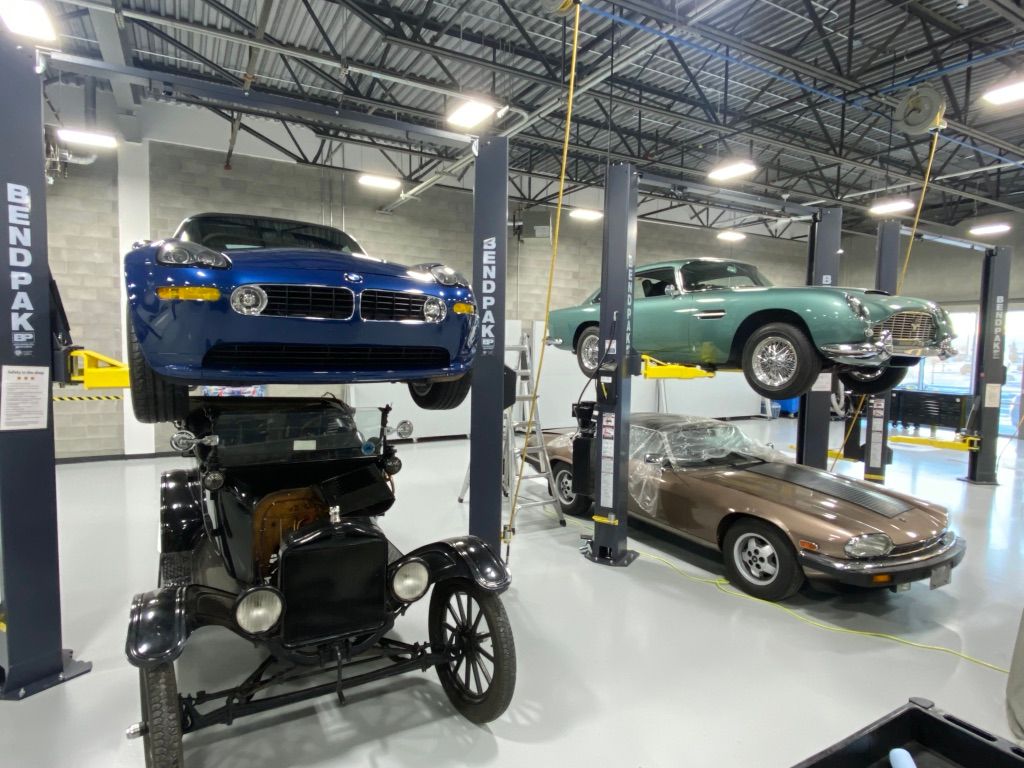
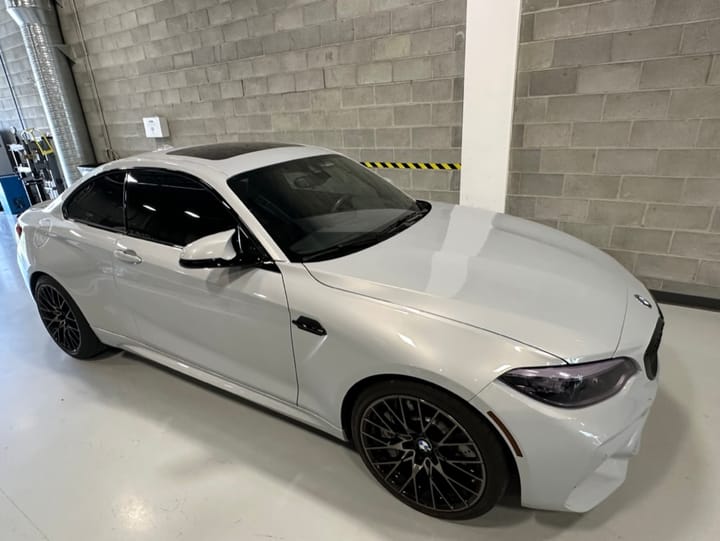
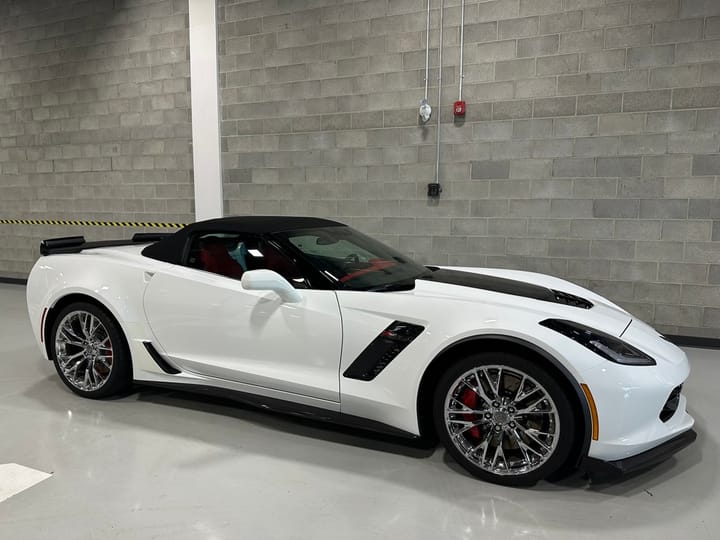
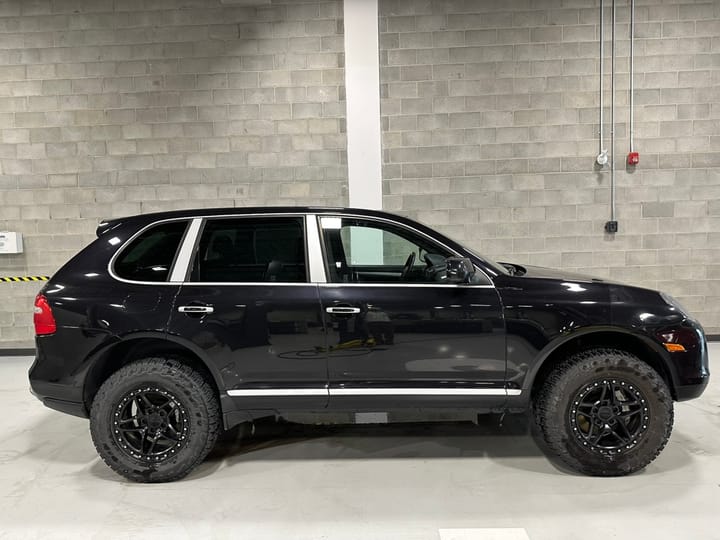
Comments ()